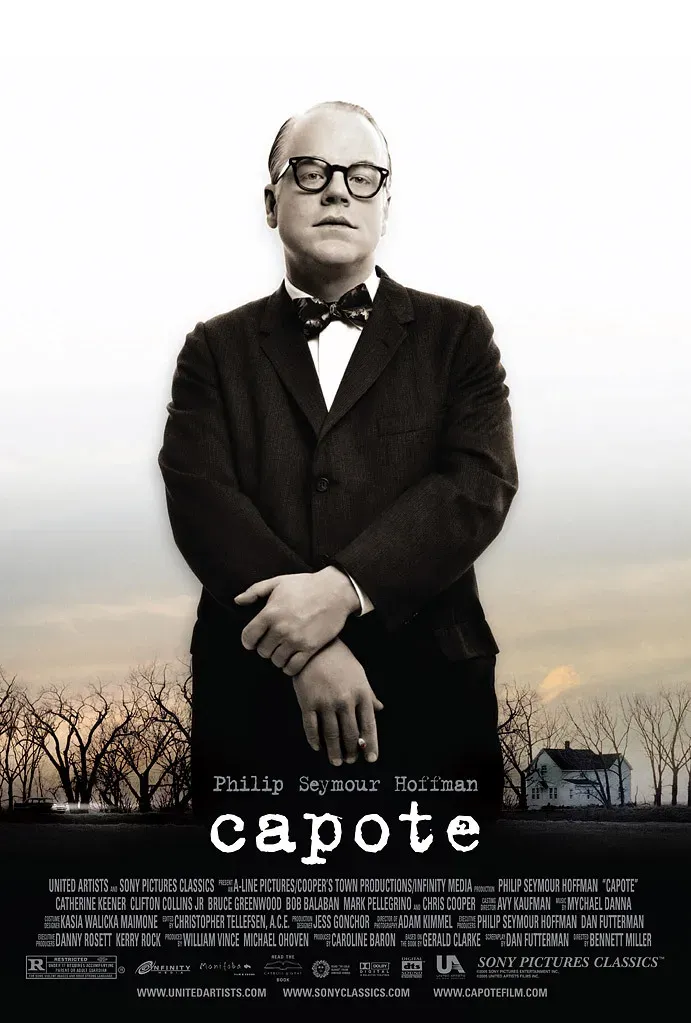Capote (2005)

Capote (2005) follows celebrated New Yorker writer Truman Capote as he becomes obsessed with the real-life 1959 massacre of a Kansas family. What begins as a journalistic assignment quickly turns into an all-consuming project: Capote decides to expand a magazine piece into a “nonfiction novel” and moves to Holcomb with his friend and researcher Nelle Harper Lee to interview locals, investigators, and ultimately the two young men arrested for the crime. As he develops a close, complicated bond with one of the prisoners, Perry Smith, Capote’s professional ambition collides with growing personal involvement, forcing him to confront the ethical and emotional cost of turning human tragedy into art. Watching the film you’ll get an intimate, character-driven study more than a conventional crime thriller. The story unfolds slowly and precisely, emphasizing conversations, small gestures, and the power dynamics of interviews and friendships. The film explores themes of obsession, sympathy versus exploitation, the responsibilities of a writer, and how celebrity can both open doors and distort judgment. Period detail and a restrained, moody tone give the piece a haunting, elegiac quality. Viewers can expect a powerful lead performance and a psychologically rich, often uncomfortable experience: intense one-on-one scenes, mounting moral tension, and a sense of inexorable consequence as Capote edges toward the book’s completion. It’s a thoughtful, unsettling drama that lingers after the credits, posing questions about truth, art, and the human price paid to achieve them.
Actors: Philip Seymour Hoffman, Clifton Collins Jr., Catherine Keener
Director: Bennett Miller
Runtime: 114 min
Genres: Biography, Crime, Drama
![]() 6.6
/10
6.6
/10
88
/100
7.3
/10
![]() 7.6
/10
7.6
/10